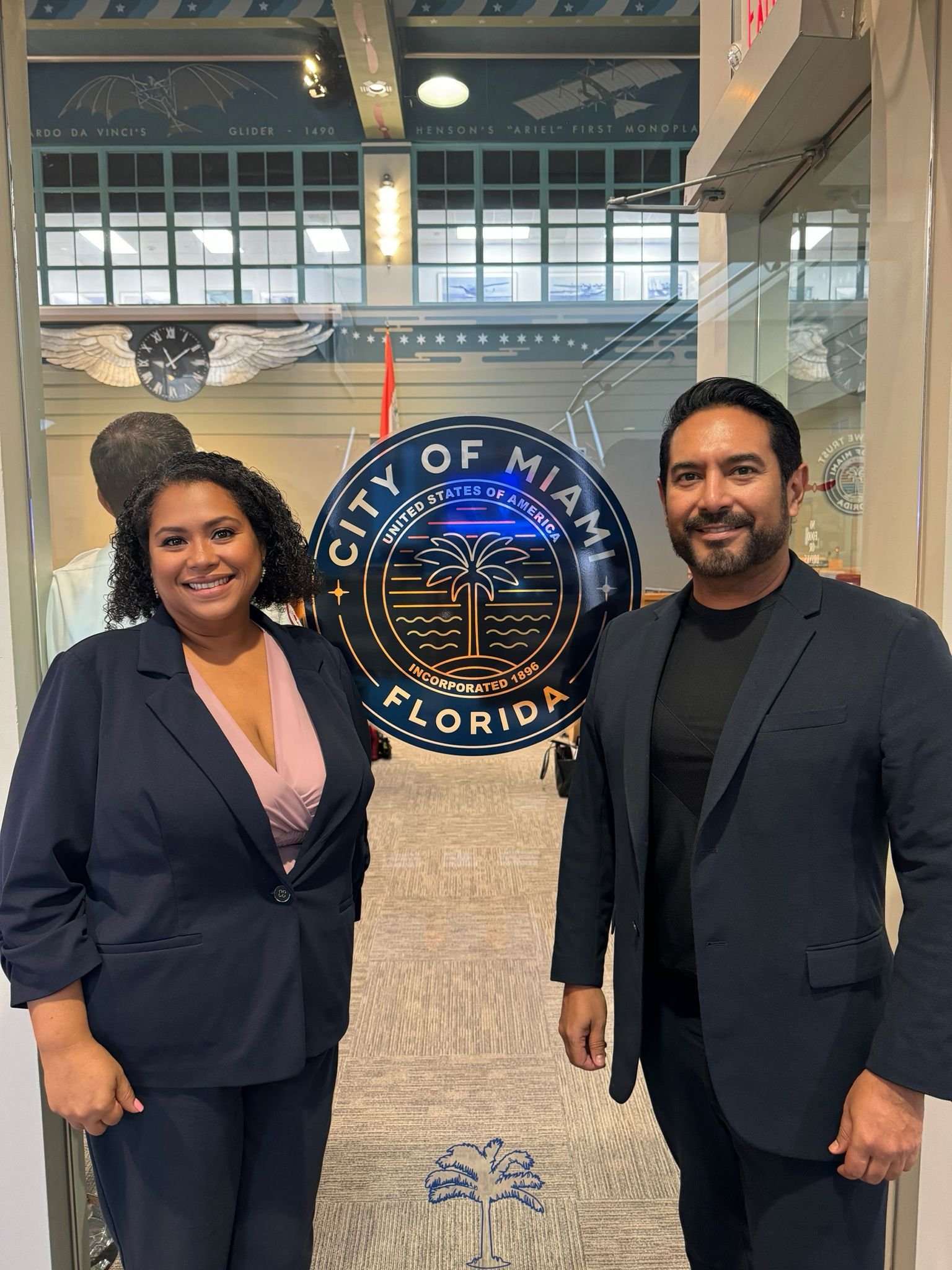Championing Women Through Community Development: An Interview with Mileyka Burgos-Flores:
As a Dominican-American activist and founding Executive Director & CEO of The Allapattah Collaborative, Mileyka Burgos-Flores brings extensive expertise in community development and wealth-building within marginalized communities. In August 2024, she joined the Grameen America Board of Directors to advance her mission of empowering women entrepreneurs.
We spoke with Mileyka about the current landscape of women’s entrepreneurship, her vision for uplifting underserved communities, and the importance of creating equitable opportunities for women of color.
Why did you join Grameen America’s Board of Directors, and what impact do you believe Grameen America can have on the broader economy?
I joined Grameen America’s Board of Directors because I deeply believe in the power of entrepreneurship to transform lives and communities. The organization’s commitment to empowering low-income women through microfinance aligns with my passion for equitable growth and economic justice. This role presents an opportunity to leverage my skills and network to support Grameen America’s impactful mission.
Grameen America has the potential to create significant ripple effects in the broader economy. By empowering women entrepreneurs, we’re not only helping individuals achieve financial independence but also fostering job creation, innovation, and economic growth within communities. Women reinvest a substantial portion of their earnings back into their families and neighborhoods, which can lead to improved education, health, and overall community well-being.
Grameen America is shifting the narrative around the creditworthiness of women entrepreneurs. How have you seen the power of access to financial capital and support resources change the lives of women entrepreneurs?
Through my leadership at The Allapattah Collaborative CDC in Miami, I’ve witnessed firsthand how access to financial capital and support resources can profoundly change the lives of women entrepreneurs. Many of these women come from marginalized backgrounds and often face barriers in accessing traditional financial services. However, when they gain access to microloans and tailored support, their potential is unlocked in remarkable ways.
For instance, I’ve seen women who initially struggled to finance their small businesses turn into thriving entrepreneurs. With access to capital, they’ve been able to invest in equipment, expand their product lines, and even hire employees. This not only improves their own financial stability but also creates jobs and boosts the local economy. Support resources—such as business training, mentorship, and networking opportunities—are essential and transformative. Women gain not only the financial means to succeed but also the knowledge and confidence to navigate the challenges of entrepreneurship. They become part of a supportive community, sharing experiences and strategies, which fosters resilience and innovation.
What role does mentorship and community support play in empowering women to thrive in the entrepreneurial ecosystem, and how can organizations foster these relationships?
Entrepreneurs need three types of capital: financial, knowledge, and social. Mentorship and community support are part of that social capital, offering women entrepreneurs critical tools for success, including confidence, access to networks, financial resources, and emotional support. By creating structured mentorship programs, fostering inclusive communities, and providing access to tailored resources, organizations like Grameen America can play a transformative role in helping women overcome barriers and thrive in the entrepreneurial ecosystem.
In the low-income immigrant community where I work in Miami, I saw the need for these services. For example, The Allapattah Collaborative CDC’s Negocios Activos program was designed as a masterclass to empower small business owners through workshops and networking opportunities, connecting them to technical assistance and access to capital. The program emphasizes supporting immigrant-owned businesses, preserving cultural identity, and fostering economic stability in the community.
Looking ahead, what are the next steps needed to create more inclusive financial systems that truly support women’s economic mobility?
Meeting the credit needs of women entrepreneurs who want to grow their businesses would have significant economic benefits for the U.S. economy. Recent research by Wells Fargo shows that closing the gap in average revenues between women- and men-owned businesses could generate an additional $7.9 trillion in revenue. Despite these huge economic benefits, today only 3% of venture capital goes to women founders, and less than 0.5% to women founders of color. Women of color also account for only 4% of conventional small business loans. As a nation, we cannot afford to leave this untapped potential on the table.
We must improve access to capital, including tailored funding for female entrepreneurs. Expanding financial empowerment programs, particularly for investment and entrepreneurship, is key. Financial products must also be customized to women’s needs, while mentorship programs and networks should provide ongoing support. Policy reforms are needed to remove systemic barriers, and leveraging technology—especially fintech solutions—can broaden financial inclusion and access for women in underserved communities.




